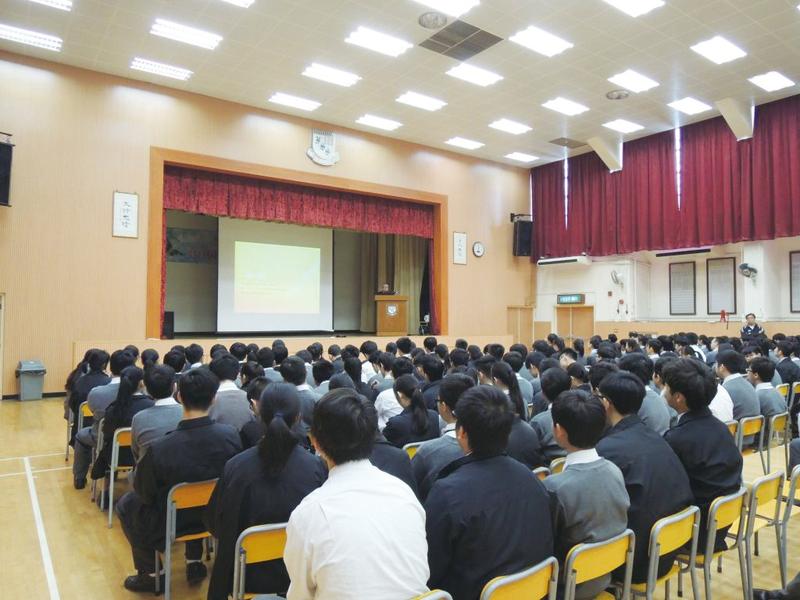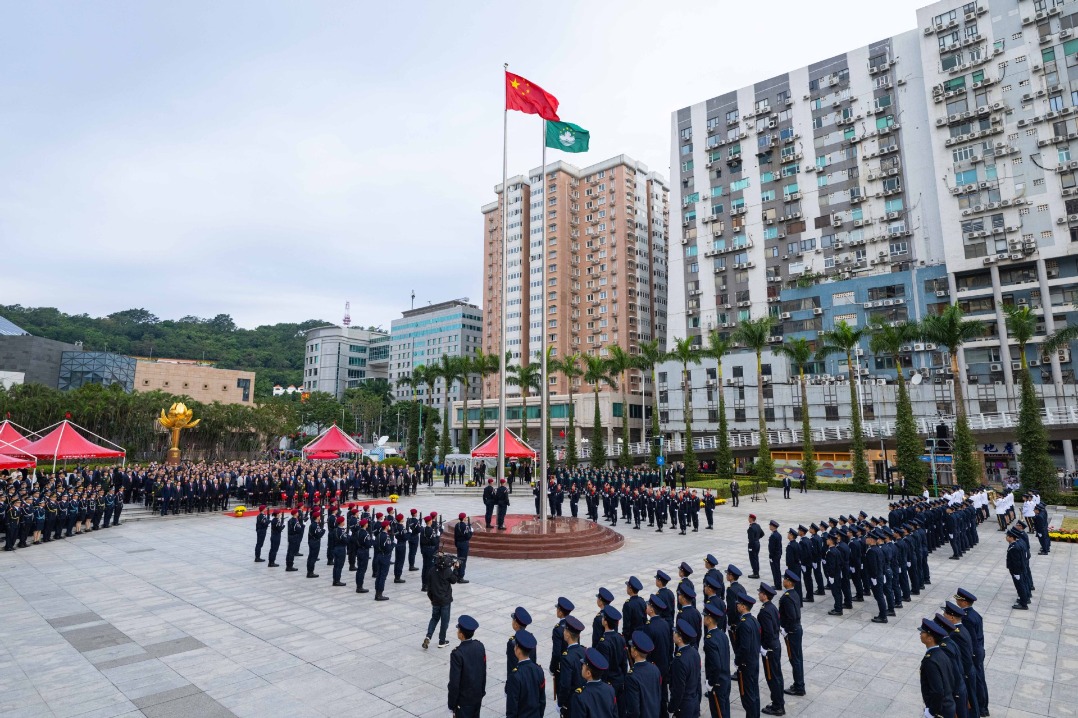National education: Know your roots to know yourselves


Global practices
In this regard, Hong Kong can take a leaf from Macao, which is also governed under the "one country, two systems" principle.
Moral and civic education is taught in Macao — from primary through secondary school. The textbooks are compiled by the People's Education Press, which publishes textbooks for mainland schools, at the request of the Macao Education and Youth Affairs Bureau in 2008. The topics include the Constitution and the Basic Law.
According to national political adviser Ho Teng-iat, flag-raising ceremonies are a regular event at Macao's 87 primary schools and colleges.
Then-Japanese prime minister Shinzo Abe did not shy from advancing national education when he took office in 2006. His administration soon revised the country's Basic Act on Education to highlight the objective of "fostering the value of respect for tradition and culture and love of the country and regions".
Abe went further during his second term when his administration distributed workbooks on the awareness of Japanese identity and Japanese traditions in schools to address "extreme individualism and loosening social ties" among young people.
Japanese primary schools introduced a subject on moral and national education in April 2018, and junior high schools followed suit a year later with textbooks vetted by the government, as is the requirement for all textbooks.
Singapore introduced a similar curriculum in schools in 1997 to "build national cohesion" and "cultivate students' confidence in our future". Then-prime minister Goh Chok Tong said Singaporean youths lacked proper knowledge of their country, particularly its modern history, and national education was deemed vital to remedy the situation.
The initiative covers four aspects — fostering a sense of identity, pride and self-respect among young people as Singaporeans; getting them to know the Singapore story; getting them to know Singapore's unique challenges, constraints and vulnerabilities; and instilling in young people the core values of the way of life and the will to prevail that would ensure their continued success and well-being.
In the United States, the antithesis cited by critics of Hong Kong's push for national education, the importance of respecting the national flag and anthem, as well as loyalty to the nation, is taught in the classroom.
Hong Kong's urgent task
Ho Hon-kuen, principal of the Centre of National History Education (Hong Kong), said the city faces the urgent task of bringing students exposed to toxic separatism back on track, which he called a pressing educational matter.
Among the 10,022 people arrested in connection with violent protests between June 9, 2019 and Sept 15 this year, 1,729 were below the age of 18, while 3,927 were students. A 13-year-old girl received a 12-month probation order for burning the national flag "out of impulse".
Such a worrying situation attests to the importance of introducing national education, said Lawrence Tang Fei, principal of Heung To Secondary School (Tseung Kwan O). Radical forces will penetrate schools and feed youths with poisonous ideology if the city doesn't buttress its education system, he said.
Tang suggested that national education be taught using a structured curriculum instead of having its contents scattered throughout different classes.
Currently, subjects such as liberal studies, Chinese history and literature cover certain issues that touch on national education, but "100 schools have 100 teaching materials", he said.
National education is a very crucial subject that should not be taught coincidentally with other subjects, Tang said. "The teachers don't necessarily have a deep understanding of modern China. This is why some students have failed to form an objective and accurate idea of contemporary China."
Ngai rejected suggestions that the local education system focus on making "global citizens" and that national education amounts to "retrogression".
The long-time educator argued that national education provides a route for people to find their roots instead of "reviving nationalism" because only by truly loving and respecting their true identity can they love and respect people of different backgrounds. "Appreciating your nation does not contradict becoming a global citizen," he said.
Ngai agreed with the views of Chinese Confucian philosopher Mencius, who famously said: "Honor old people as we do our own aged parents, and care for others' children as one's own."
Loving one's own identity is prerequisite for the growth of everything else, Ngai said.
- Vice-chairman of CPPCC Jiangxi Provincial Committee placed under investigation
- Five trapped in flooding accident at Heilongjiang coal mine
- Long March 5 rocket deploys tech demo satellite into space
- China launches communication technology test satellite
- Spokesperson warns against aggression toward mainland fisherman
- Lhasa wetland reserve recognized as world's highest altitude wetland




































